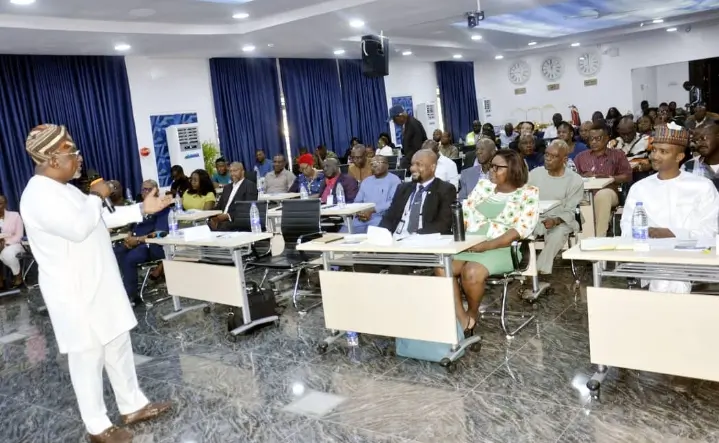
The Nigeria Civil Aviation Authority (NCAA) has charged the Approved Training Organisations (ATOs) in the industry on the need for compliance to international standards of safety.
Director General of the agency, Capt. Chris Najomo, gave this charge at the inauguration of a three-day workshop organised for ATOs by the NCAA.
Aimed at educating them on compliance to the civil aviation regulations of 2023 (Nig.Cars) the workshop, which kicked off today in Lagos, brings together stakeholders to discuss best practices in managing ATOs.
In his opening remarks, Najomo represented by the NCAA’s General Manager Licensing, Hyeini Bassi, emphasised the critical role ATOs play in ensuring the safety and efficiency of aviation operations.
He however, buttressed that there are challenges mitigating against meeting global standards.
“We face significant challenges in maintaining high standards of quality and compliance within our training organisations,” he noted.
Part of the challenges according to him, is the inability for local ATOs to attract foreign participants, which he said could be curbed by adopting international best practices.
Bassi highlighted the importance of a proactive and collaborative approach, given the rapid advancements in technology, evolving regulatory frameworks, and increasing complexity of aviation operations.
Giving an overview of the ATO Regulatory Standards, Bassi stated that there are standards in the operation of ATOs and if they are not followed there will be problems, while sticking to them will make room for a seamless operations.
“It’s not about having 40 ATOs but having even if it’s few that are qualified to do the job,” he noted.
Welcoming the stakeholders earlier, the Director of Operations and Licensing, Capt. Don Spiff, said the workshop was essentially to build a collaborative walk with the NCAA and the ATOs.
The goal of the engagement which he described as the first of its kind was to achieve safer skies via a collaboration between the NCAA and the stakeholders.
The workshop aims to foster a culture of transparency and accountability in the agency’s training programmes, with stakeholders hailing the collaboration and seeking regular sessions to achieve safer skies.
The workshop will explore various aspects of compliance management, including regulatory requirements, evaluation methodologies, and mechanisms for continuous improvement.
A communique will be presented to the NCAA management at the end of the three-day training, outlining recommendations for effective implementation.
Stakeholders at the opening ceremony of the workshop hailed the collaboration and sought for a quarterly or at least once a year workshop.



